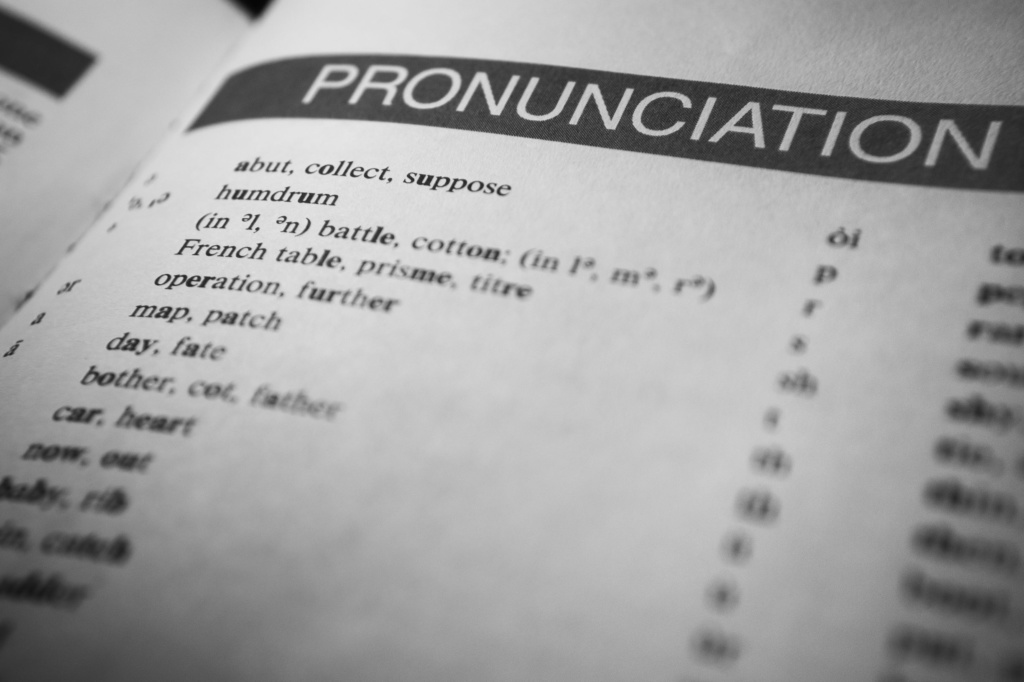By Pan, Finnbrit teacher

Think back to English lessons in your school or university days. What do you remember? What did you focus on during the lessons? What did your teacher tell you about?
If I had to guess, I would say that your English lessons had a pretty heavy grammar focus with a fair amount of vocabulary scattered throughout so that you had enough new words to fit into the gaps of whichever grammar structure you were focusing on.
Does that sound familiar? As for the tests, I imagine they had some sort of grammar gap fill exercises as well as some translations to and from your native language.
This was my experience of studying French, German and Russian at university in the UK, and students of English all across Europe have told me similar stories about their experiences learning English. One huge drawback of this method of teaching is the lack of a focus on pronunciation. A solid understanding of pronunciation, intonation and stress patterns in English isn’t necessary for passing exams that focus on grammar and vocabulary, so many students have no idea about how English pronunciation actually works or how important it is in the real world.

Outside of school and university exams, where the focus is often on writing with grammatical accuracy, the most useful skill for the vast majority of language learners is speaking. If you can’t speak a foreign language comfortably and confidently, it’s safe to say that you won’t feel that you ‘know’ the language, even if you can pass a grammar test.
So, how can pronunciation make a difference to your speaking skills? Let’s start by understanding the fundamentals about how English pronunciation works. English, much like German and Russian, is a stress-timed language, which means that stressed syllables are said at roughly regular intervals, and unstressed syllables have to shorten to fit this rhythm. Syllable-timed languages like French and Spanish are ones where each syllable takes approximately the same amount of time.
In order to sound natural and make it easy for your listeners to understand you, it’s important for you to be aware of all the sounds of English, to know which syllable in each word is stressed and which words in each sentence should be stressed. These are the foundations of English pronunciation and make a huge difference to how you sound and how easy it is to understand you when you speak English.
If you speak English without the appropriate rhythm and stress pattern, it’s much harder for your listeners to understand what you’re saying and understand your message. For example, last year I attended a video presentation given by a highly educated, highly qualified professor of linguistics who knows more about the science of languages than I could ever hope to learn. The presentation consisted of about 50 slides, packed full of valuable information, unique concepts and academic references. Everything looked perfect and I was sure that this presentation would blow my mind and enlighten me. But then, the professor started talking. From the sounds of it, he had a microphone from the last century which somehow only managed to pick up every other word, but aside from the technical problems, this highly decorated academic scholar sounded bored. I don’t know if he was bored – maybe his lifetime of research had left him sick to death of his subject, or maybe he wasn’t bored at all and that’s just what I interpreted from the lack of excitement in his voice due to his flat intonation. Either way, after the first 30 seconds the rest of the lecture was a total waste for me. I couldn’t take anything from his speech because his voice was so monotonous and it actually took quite a lot of effort for me to focus on what the professor was saying to try and decipher his message.
Remember that people judge the value of your ideas based on how well you communicate them. Even if your idea is amazing and people want to hear it, your pronunciation can let you down.
As someone who has studied foreign languages at university, I know the pressure of speaking exams and how important it is to feel confident when you are answering questions in a foreign language. If you don’t feel confident about your pronunciation, you probably won’t enunciate clearly and therefore it will be harder for your examiners to hear and understand what you are saying, which makes it trickier to score the top marks. I had this problem in my first year of Russian at university, but after dedicating some time to pronunciation and practising the stress and intonation of Russian, I felt much more confident about my speech and scored much higher on my oral tests.

My final thought regarding pronunciation would be this. Imagine you need to give a presentation in English. Think about how much time you would spend on choosing the right words to convey your message powerfully, then consider how long you would spend on making sure you are delivering the message in the most natural, effective way possible.
As I said before, people judge the value of your ideas based on how well you can communicate them, so make sure your pronunciation isn’t letting you down and that you can make the most of your ideas in English.
